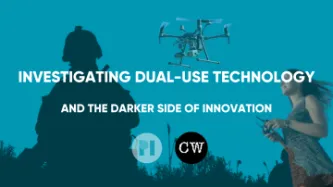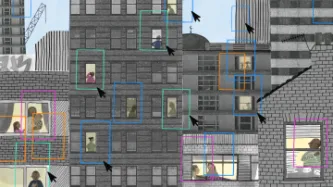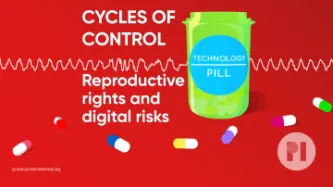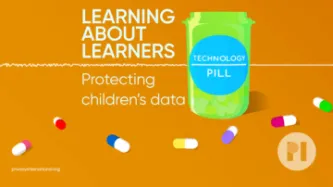Search
Content type: Report
The rights to secrecy of the vote, privacy, political participation and non-discrimination were undermined in Argentina’s October 2025 legislative elections.Federal election authorities failed to ensure universal accessibility to a secret vote in the election. The fundamental human rights of certain people in Argentina's electorate, including those who are blind and have low vision, and illiterate people, were infringed upon. Read our report in full here. The October 2025 election…
Content type: Advocacy
Privacy International welcomes the UK House of Lord’s Justice and Home Affairs Committee’s investigation and subsequent report on electronic monitoring.The UK currently monitors some individuals who have interacted with the criminal justice system, and all individuals released on bail from immigration detention, through fitted GPS tags and non-fitted monitoring devices.In the immigration context, the Home Office touts electronic monitoring as a less restrictive way to maintain contact with…
Content type: Long Read
A tribunal in the UK has overturned a legal judgment about Clearview’s objectionable scraping of images of people’s faces from the internet. The latest ruling helpfully clarifies what should be in scope of data protection law, and provides a sensible view on how companies that operate across many jurisdictions should not be able to dodge the application of local laws.Clearview’s model of selling intrusive surveillance to law enforcement agencies is not just grim, it also undermines people’s…
Content type: News & Analysis
Last week marked the 20th anniversary of the Declaration of Principles (DoP) for International Election Observation. Over 50 endorsing election observation organisations representing all regions of the world met at the United Nations to reaffirm their commitment to supporting genuine democratic elections and to the principles for international election observation as set forth in the Declaration.Reflecting on the increasing role played by personal data and data-intensive technologies in the…
Content type: Video
Links Read more about your optionsLearn more about PI's position on the Cyber Resilience Act
Content type: Long Read
We are living through a moment of profound transformation as military imperatives and corporate interests are no longer separate threads in the fabric of technological innovation. Instead they are inseparably interwoven. “Innovation” is increasingly framed not as a response to a concrete human need, but in terms of strategic advantage, deterrence, and national security. States and corporations alike are turning to technology which blurs the line between civilian life and military power to…
Content type: Report
Technologies that have both military and civilian applications are known as "dual-use”. Drone start-ups, arms giants, and satellite manufacturers are among the tech companies which are increasingly marketing surveillance products for both military and civil applications, leading to a blurring of the lines between the two domains. This has serious implications for our freedoms, and the militarisation of our societies, and the use of publicly-funded research.Exploring the growing influence of…
Content type: Long Read
Following the publication of our Technology, Data and Elections Checklist, we have created a deck of Tech, Data and Elections Playing Cards. Both the checklist and the deck of cards aim to give electoral observers and civil society the necessary tools to understand and question the role of technologies in the electoral process. The cards enable a playful way to explore with important topics such as:♥ Hearts: Why does data protection matter during the election cycle?♦ Diamonds: What tech is…
Content type: Long Read
In England’s schools, children are not only pupils but also data subjects. From the moment they are born, a digital record begins to take shape — one that will follow them through nursery, primary school, secondary education, and in many cases well into adulthood.What was once a matter of paper registers and filing cabinets has become a complex infrastructure of digital systems, databases, and analytics tools, managed by both the state and private companies, for AI, surveillance, and more.…
Content type: Video
All of our militarisation workBelow are all the articles we talk about in this episode:What is Militarisation of Tech?Key Concerns Regarding Governance in the Era of Militarisation of Tech“Killer Robots”: Read PI's statement during informal consultations on autonomous weapons systems in New YorkHow Data Drives the Militarisation of TechOn the Applicable Legal Frameworks and Regulatory Gaps: International Humanitarian Law and International Human Rights LawWe have a mailing list specifically for…
Content type: Advocacy
On 3 July 2025, the General Conference of the International Labour Organization (ILO) adopted a resolution committing the ILO to adopt a Convention supplemented by a Recommendation concerning decent work in the platform economy following a second discussion on this issue in 2026. PI welcomes the ILO's decision as a step in the right direction to protect platform workers who have been at the forefront of new forms of data exploitation in the workplace as we have been documenting for many…
Content type: Long Read
IntroductionHealthcare needs privacy. Sometimes this is obvious: patient-doctor confidentiality means that our conversations with healthcare providers must remain private. But there are deeper, more complex, and at times more contested, questions too. For example, over who should have access to what resources and what data, for what reasons, and at what cost.Global and local inequalities in access to both healthcare and digital services adds to this complexity. Everyone has a right both to the…
Content type: News & Analysis
Today we learned the UK has issued a new secret order forcing Apple to undermine iCloud’s advanced encryption again, but this time only for UK users.While this seems like progress - and it is in the sense that the UK is clearly reacting to the global concern and US Government pressure generated by its original directive to Apple - the new order may be just as big a threat to worldwide security and privacy as the old one. The status of the original order remains unclear.If true, this new order…
Content type: Long Read
In their gold rush to build cloud and AI tools, Big Tech is also enabling unprecedented government surveillance. Thanks to reporting from The Guardian, +972 Magazine, Local Call, and The Intercept, we have insights into the murky deals between the Israeli Government and Big Tech firms. Designed to insulate governments from scrutiny and accountability, these deals bode a dark future for humanity, one that is built using the same tools that once promised a bright, positive world.On 25 September…
Content type: Long Read
Across the world facial recognition technologies (FRT) are increasingly being deployed in public and private spaces without adequate laws or regulation to protect individuals from the grave risks they pose to human rights. States rely more and more on this technology for public mass surveillance, enabling an authoritarian omnipresence over people’s activities, movements, and expressions at all times, often without them knowing.Over the past few years we have raised concerns about the rapid…
Content type: Long Read
Governments are increasingly relying on data-intensive systems, both to wage wars and to administer public services. These systems, increasingly provided by the same firms using similar tools, will come to affect our day-to-day lives whether we are in war zones or town squares. This is the era of Militarisation of Tech.The technologies that our governments rely on to deliver services and pursue their objectives are becoming increasingly data-intensive and militarised, which threatens our…
Content type: Long Read
Legal regimes governing situations of armed conflict and peace time have traditionally been clearly defined, leaving little to no doubt as to which regime applies to what situation. However, the Militarisation of Tech challenges this tidy distinction. Instead we are seeing the blurring of lines between actors, technologies, and the areas of deployment, financing, export, and regulations of certain technologies. This growing overlap between on the ground and remote, between war and peace,…
Content type: Long Read
We are at a war footing as we enter an era where the tech world is increasingly defined by conflict. Innovation has never been driven solely by social needs, market forces or the common good. Military imperatives have periodically played central roles in steering the development of new generations of technologies. For instance, the origins of the internet can be traced back to defence research and initiatives like the ARPANET.Now we are witnessing a significant shift: states and corporations…
Content type: Long Read
Governments are rapidly militarising our societies. They are already increasing military spending, undermining civil rights protections, and reducing social protection programmes. Governments already depend on the private sector for delivering public services, through public-private partnerships.Now they are looking to the tech industry to design the next generation battlefield. As new technologies are at the core of this shift, industry is keenly adapting.Big Tech firms are militarising,…
Content type: Long Read
There’s a revolution occurring in how war and conflict are waged. New data-intensive systems are being developed; battlefields are testing grounds for a new generation of tech; and commercial tech infrastructure is now supporting military operations.Data plays a key role in this revolution. Data is used to train and test systems, and the systems are fed data to target operations, communities, and individuals.While intelligence has long informed warfare, now we’re seeing the very same…
Content type: Advocacy
We have been concerned about the expansion of EdTech includes a wide range of tools that enable the surveillance of students and academic staff, often facilitating monitoring by both public authorities and private entities.We brought our concerns responding to the UN Special Rapporteur on education call for contributions on safety as an element of the right to education and a precondition for its full realization.We considered this report an essential platform to examine the complex interplay…
Content type: Examples
Popular educational apps have access to reams of private data that could result in privacy and security violations, a new study has found.25 apps were tested, with many found to request access to the users’ camera, calendar, location, contacts, and the ability to record audio, among other permissions.Apps like Canvas Student, Coursera, Duolingo, Remind, and Simplilearn can access Google, Meta, and Samsung accounts on the device - something that is not necessary for them to work, but which could…
Content type: Long Read
On the basis of a year of legal research by PI as well as documents obtained by other civil society organisations, and evidence provided by legal representatives fighting these automated systems on behalf of their clients, on the 18th August 2025, we issued a formal complaint to the UK Information Commissioner (ICO) regarding the UK Home Office’s use of two ‘automated recommendation-making tools’ (ARMTs), the Identify and Prioritise Immigration Cases tool (IPIC) and the Electronic Monitoring…
Content type: Video
Links Maria's original rewilding article, with Robin Berjon, in Noema Maria's article 'This is your phone on feminism'A talk Maria gave about rewildingMaria's website where you can keep an eye to find out when her book is coming out!London Centric and the F**k you busMore about PI's work on competition
Content type: News & Analysis
Freedom of Information (FOI) requests have revealed the rapidly increasing scale of police mass facial recognition searches against the passport and immigration databases. New figures reveal that the number of searches of the passport database has “skyrocketed” from 2 in 2020 to 417 in 2023, and an almost sevenfold increase from 16 searches of the immigration database in 2023, to 102 in 2024. The Home Office and police forces are conducting these searches against over 150 million photos of the…
Content type: News & Analysis
We’ve been warning for a while now about the risks of AI Assistants. Are these assistants designed for us or to exploit us?The answer to that question hinges on whether the firms building these tools are considering security and privacy from the outset. The initial launches over the last couple of years were not promising.Now with OpenAI’s agent launch, users deserve to know whether these firms are considering these risks and designing their service for people in the real world. The OpenAI…
Content type: Video
LinksLearn more about Repro uncensoredRepro Uncensored incident report formAdriana Smith's caseMore about Adriana's casePrivacy International's Menstruation apps researchResearch on Bing's Typo-searchingMSI on the Global impact of Roe V. Wade being overturnedReport by Fòs Feminista on the Global Impact of the Dobbs DecisionMeta getting rid of factchecking functionAmazon USA report called Obstacles to Autonomy, which includes info on advertising account restrictionsAn report by the Independent…
Content type: Advocacy
On 10 March 2025, Privacy International (PI) attended the 32nd Session of the Committee of the Convention on the the Rights of Persons with Disabilities (CRPD Committee) in Geneva, and participated in a private briefing to the Committee on the European Union (EU).As part of PI's work promoting Economic and Social Justice, we have been advocating on concerns surrounding the link between privacy, personal data and technology use and the rights of persons with disabilities. To this end, we…
Content type: Guide step
If you use Viber on your day-to-day it's worth reviewing some of your current settings and how you are making use of the platform.
This guide includes:
Chat backup settings
Visibility settings
App permissions
Managing sessions
Good Practices
Deactivating your account
Chat backup settings
This is a key setting to look into. Viber states that is is end to end encrypted, which means that messages are only accessible by both the sender and the receiver, not being stored anywhere along the way.…
Content type: Video
Links:Read more from Defend Digital MePI's work on Securitising Education25 Years old - The Database State report5 safes principlesUK Government's publication on Genomics in EducationTips and Tricks for submitting a Data Subject Access RequestRequest your information from the Department for Education




























